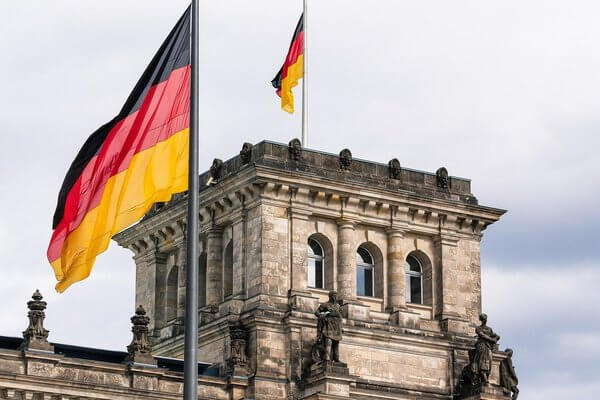News Release from windfair.net
Wind Industry Profile of
Germany: Battle for 1.5 degree target lost
"Under the 2015 Paris Climate Agreement, 196 countries pledged to drastically reduce their greenhouse gas emissions with the goal of slowing global warming. But the measures announced so far are not nearly enough to meet the 2-degree target, let alone limit the global temperature rise to 1.5 degrees, which would avert the worst consequences of climate change."
That's how clear researchers from the German National Academy of Sciences Leopoldina are in their working paper, which they presented to the German government in Berlin on Tuesday. In it, they have taken the lead in formulating recommendations for action for researchers from all over the world for the G7 summit, which will take place at Schloss Elmau in Bavaria, Germany, at the end of June. The G7 countries are responsible for almost half of the greenhouse gas emissions and currently account for about 25% of global CO2 emissions per year. Thus scientists call for international action on climate protection, energy transition and reduction of greenhouse gas emissions to achieve the goals of the Paris Climate Agreement. This also includes phasing out fossil fuels, especially coal, and pushing ahead with the expansion of renewable energies.
Leopoldina president, Gerald Haug, put it even more bluntly to the Mitteldeutsche Zeitung: "We still have 10 to 15 years to do everything we can to achieve the goal of limiting global warming to two degrees. But then this mark will be lost for good. Just like the 1.5 degree target, which is no longer achievable."

The German government is adamant that the climate targets are still achievable (Image: Pixabay)
However, the German government officially still sees things differently. Thus Patrick Graichen, state secretary in the Federal Ministry for economics and climatic protection (BMWK), was confronted recently by the solar energy promotion association SFV with the question, due to which numbers the Federal Government comes to the thesis, it would still be on a 1.5 degrees path with the present planning. According to calculations of IPCC, Germany would be entitled to only 4 gigatons (Gt) of CO2 emissions, while the current plans of the Federal Government would result in emissions of more than 10 Gt.
Graichen replied that the globally assumed emissions budget could not simply be allocated to the individual states according to population size. As an industrialized nation, Germany had to apply different standards; the government was referring to the 1.5 degree scenarios of the International Energy Agency (IEA).
Criticism followed promptly, as the IEA is known to have massively underestimated the expansion of renewable energies in its forecasts for years and to have propagated an excessively long adherence to fossil energy and nuclear power due to pressure from individual countries, as The Guardian already revealed in 2009.
In addition to the Leopoldina scientists, other experts have also come to the conclusion that Germany's goals are not nearly ambitious enough. Shortly after the presentation of the coalition agreement in November, Claudia Kemfert, economist at the German Institute for Economic Research (DIW) and a specialist in energy policy, analyzed that the "coalition agreement does contain an ambitious climate protection program," but that it is "unfortunately not enough to achieve the 1.5C-degree target.
And although Federal Minister of Economics Robert Habeck has presented further plans to advance Germany's energy transition with the submission of the Easter package and the announcement of the summer package, even these are not enough: "Yes, it's about practicability, but it's also about scientific honesty," Kemfert commented on the federal government's plans, according to SFV. An expert report on "Update of the Budget Calculations" by the DIW is expected in the near future - it is already known that it also concludes that Germany will clearly miss the 1.5 degree path.
So the question ultimately arises whether Germany will adjust its climate protection targets after all - or how long it will take before it is publicly admitted that the 1.5 degrees can no longer be achieved.
- Author:
- Katrin Radtke
- Email:
- press@windfair.net
- Keywords:
- Germany, 1.5, degree, climate protection, G7, summit, target, emissions, CO2, Paris Agreement, consequences, climate change, global


























